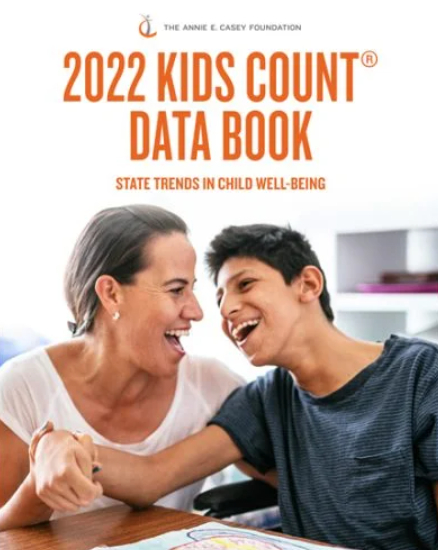According to a new report released earlier this month, levels of anxiety and depression among Wisconsin’s youth are rising, especially among children of color. The 2022 KIDS COUNT Data Book, released by the Annie E. Casey Foundation, presents 16 indicators of well-being for children and families, as well as reports on the mental health needs among the state’s youth.
A press release published by Kids Forward, a child advocacy organization based in Wisconsin, stated that while all data sets were deeply concerning, the mental health crisis is not felt equally among white children and children of color in the state. Recent data from 2019-2020 shows that 26% of Black children, 60% of Native American children, and 22% of Latinx children were diagnosed with or reported to have anxiety or depression in Wisconsin, in contrast to 15% of white children. Michele Mackey, CEO of Kids Forward, tells Madison365 that the COVID-19 pandemic had a significant impact on data shown.
“As we’ve heard in the media a lot lately and from pediatricians, childcare workers, and even the US Surgeon General has noted that the pandemic definitely seems to take a toll on young people’s mental health. We see that that is even more significant for children of color,” says Mackey. “What they witnessed was that their communities were hit more desperately, by the COVID pandemic, they lost more people, more family members than white families necessarily lost.”
While the pandemic had a significant impact on the increase of depression or anxiety among children of color, these statistics are nothing new to Wisconsin, which has been distinguished as one of the worst ranking states in the nation for racial inequality.
“I think we witnessed our healthcare system, even before the pandemic, being under considerable pressure. We know there are health disparities, that those disparities are not just in access, which is true, but also in treatment within the healthcare system and diagnosis for people of color tends to lag than for white people. So I think even before the pandemic, we were witnessing significant health disparities, the pandemic and the challenges faced by the health care system only added to that,” says Mackey.
In response to data found in the 2022 KIDS COUNT Data Book, Kids Forward and the Annie E. Casey Foundation are urging lawmakers to address the mental health burdens faced by children and families in Wisconsin, as well as prioritize their needs and guarantee every child has access to trauma-informed and culturally relevant mental health care. Kids Forward call for lawmakers to:
- Address mental health for kids by addressing social determinants of health, and economic and racial inequities. A key lever to address this is to increase the Earned Income Tax Credit as a percentage of the federal credit from 4 percent to 16 percent for parents with one qualifying child and from 11 percent to 25 percent for parents with two qualifying children beginning with tax year 2021. The earned income tax credit has been shown to be effective in reducing childhood poverty and children’s behavioral health issues, including anxiety and depression.
- Increase stable statewide investments in schools; most kids access mental health treatment there. One-time funding and grant-based funding streams are not sufficient.
- Expand Medicaid to increase children’s access to mental health and reinvest the $1.6 billion savings into improving Wisconsin’s children’s mental health system.
- Increase Medicaid payment for mental health treatment to improve recruitment and retention of mental health professionals.
- As part of the Quality Care for Quality Kids allocation, provide funding for training and technical assistance to early child care educators with the goal of reducing instances of children being removed from care settings due to behavioral challenges. Prioritize lead abatement funding (paint and pipes) in early childcare settings. 30% are in home-based childcare settings. Lead poisoning often leads to behavioral challenges, learning disorders, and adverse health.
- Increase access to contraception and abortion, which are critical to ensuring youth can choose the timing of when they want to start a family, and critical for supporting positive family outcomes.
“Our work is really to provide the data to provide qualitative context, so we speak to people in communities of color rural people and, and listen to their experience,” says Mackey. “So the other thing, you know, that we try to get folks to do is to read our reports, read reports from other policy centers, and reach out to their legislators and reach out within their local communities and talk to people about these issues. Because the more of us who understand them, the more of us that care about them, the more likely we’re going to be able to fix some of these challenges.”


































